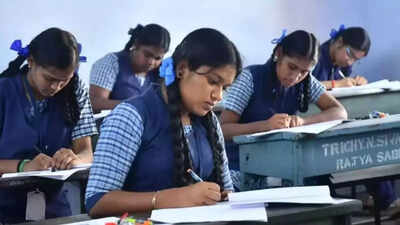
95% of Karnataka schools adopt new teaching methods, PARAKH report reveals.
Karnataka is leading the shift toward modern classroom instruction, with a majority of teachers adopting diverse, activity-based teaching methods. According to the latest PARAKH (Performance Assessment, Review, and Analysis of Knowledge for Holistic Development) report, 95 percent of schools in the state have embraced experiential learning, while 96 percent are implementing competency-based assessments, marking a significant transition in how students are being taught.The findings, drawn from the PARAKH Rashtriya Samarthan Sarvekshan, show that Karnataka is also advancing in the integration of other pedagogical practices:
- Arts-integrated learning: 85 percent
- Toy-based learning: 82 percent
- Sports-integrated learning: 79 percent
These figures reflect the proportion of teachers who reported using these methods either “regularly” or “sometimes.” The data signals widespread adoption of NEP-aligned pedagogies that encourage creativity, critical thinking, and learner engagement.However, the report also draws attention to gaps in outcomes and equity, raising questions about how effectively these new strategies are impacting student learning.
Learning levels still below expectations
Despite the promising uptake of progressive teaching methods, the PARAKH data reveals a sobering reality. In state-wide assessments conducted across Grades 3, 6, and 9, less than 50 percent of students were able to answer questions correctly in several key competency areas.
These performance levels suggest that a large number of students are not meeting grade-level learning expectations.The gap between teaching reform and student outcomes highlights the need for stronger implementation, better monitoring, and targeted academic support. Learning gaps at foundational stages can snowball into long-term academic setbacks if not addressed early and effectively.
Inclusion continues to lag in many schools
The report also highlights challenges in delivering inclusive education, especially for Children with Special Needs (CWSN).
While over half the students reported receiving help from teachers or peers, school-level infrastructure and professional support remain limited.Key findings from the Karnataka data include:
- Only 36 percent of schools offer special accommodations for CWSN
- Just 30 percent have trained or certified teachers for special needs support
- Only 33 percent of schools provide assistive devices
- 50 percent offer access to special study materials
Although peer and teacher support is present in many classrooms, the lack of institutional preparedness continues to limit full inclusion. Students with disabilities are still dependent on individual effort rather than systematic support.
Urgent need for deeper reform
The PARAKH report makes it clear that Karnataka has made notable progress in updating its pedagogy. Yet, it also underscores that pedagogical innovation alone is not enough. Without improved learning outcomes and stronger inclusion mechanisms, the larger goals of the National Education Policy (NEP) 2020 will remain out of reach.Moving forward, Karnataka will need to:
- Train teachers to use diverse pedagogies effectively
- Regularly assess and respond to student learning gaps
- Expand inclusive education infrastructure and staffing
- Ensure that pedagogy and assessment are aligned with learning recovery strategies
Karnataka’s education system is clearly in transition. But for this transformation to be meaningful, it must reflect not just in how teaching happens, but in how deeply students learn — and how equitably schools serve every child.TOI Education is on WhatsApp now. Follow us here.

 4 hours ago
47
4 hours ago
47




























 English (US)
English (US)